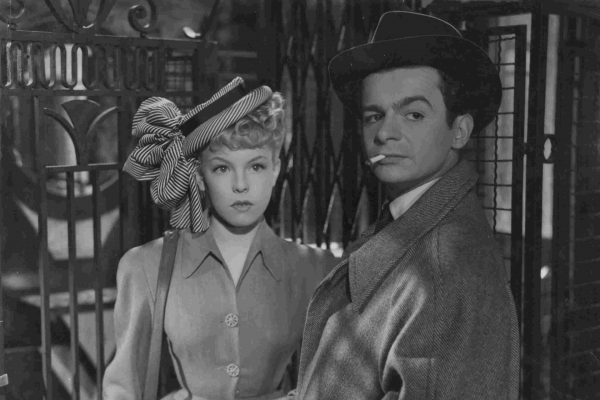Manon opens with the discovery of a pair of stowaways on a ship bound for Palestine. The pair of young lovers recount to the Captain their tortuous and bizarre romance. From the bombed out ruins of a Normandy village, young French Resistance member, Robert Degrieux (Michel Auclair) is charged with keeping a young woman prisoner until she can be put on trial. The woman is Manon Lescault (Cécile Aubry), a 16 year-old girl accused of fraternising with the Germans. However, Robert becomes besotted with her, and the pair flee to Paris, where he struggles to make a life with her and her insatiable financial demands.
The film is based on the 18th century novel Manon Lescault by Abbé Prévost, originally a story of a French nobleman, besotted with a beautiful but unfaithful common girl. By updating the narrative to the tail end of the second world war, the story is freed from the period trappings. In doing so, Clouzot focuses the story on the precarious era of war profiteering and sleazy usury in and around Paris.
It’s a deeply cynical film, whereby almost every character feels jaded to the point of misanthropy. Even Robert and Manon are mired in their own strange manias. Her obsession with money, and his obstinate almost addiction to her, makes them distinctly unlikable protagonists. In fact, the only character who shows even a glimmer of decency and compassion is Henri Vilbert‘s weary and contemptuous ship’s captain. However, there is something fascinatingly naive and pure about the romantically obsessed pair, which makes them engrossing to watch. Aubry excels in the role of the inscrutable flirt and party-girl, whose motives and real feelings are constantly elusive. Whereas Auclair plays Robert with a deeply wounded granite stoicism that only escapes in bursts of sudden anger or violence, only to be followed by regretful emotion. It’s a portrait of a toxic, and almost self-loathing love affair, and one that is all the more fascinating for its historical context.
Whilst Clouzot is well known for his cynical storytelling, Manon feels almost like a prescient step towards what would emerge as the French New Wave in the decade following it. The film may suffer from some moments of stilted acting, and some scenes of the lovers embracing in a style that is more silent era than modern cinema but it never feels cheap or false. The sweeping shots of the Palestinian desert, and the grim ruined bomb-scattered buildings of France have a sombre realism and solidity that feels almost modern in style. Something that is accentuated by the restoration of the film to High Definition for the Blu-ray.
It’s a fascinating artefact of French post-war cinema, and a film that merits being seen.
Available on Blu-ray from 24 Feb 2020
